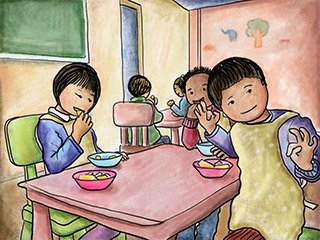Why is it important to plan the transition to school?
Children at age 6 have come a long way since they were very young. You have seen your child grow physically and intellectually and in greater control. They have started school and made such important transitions and are learning to read and write. Having said that, they still need your company, praise and support when they achieve and your encouragement to try again if required.
Most children may have attended pre-school and for those who have not, may need an open conversation about going to school. Attending school opens a whole new social world to the child. They need to understand new rules and routines and being in class during school time.
Being in school requires concentration and they sometimes may get tired or irritable, and may seek your support and approval so that they can affirm their gained confidence. For some children, even being in a large group of same age classmates can be challenging and may take time to adjust to this important transition.
Children at age six appear to be aware of differences in individuals and in their body image. They have gained independence and enjoy life with friends with whom they share activities in school and at home. This new sense of independence allows them to participate in activities such sport, school trips and so on. It is always important to keep open communications and keep talking to your child.

DID YOU KNOW?
- Children age 6 are affirming own individuality as well as being part of a group
- They may be more independent from adults and parents
- They like to test their skills and begin to take risks, if allowed
- Friends and peers’ approval become more important than before
- They start making own choices based on what they like or dislike
- They become aware of gender differences when playing
- They are more confident and like showing off to their talents
- They display an increasing awareness of their own and others' emotions
- They begin to develop better techniques for self-control
- They enjoy sharing toys and snacks with friends, although conflicts among peers may remain quite frequent
- They like predictable routines which are important sources of stability and security
- They seek emotional stability from adults with whom they feel secure, particularly during challenging situations.
Average Rating: ☆ ☆ ☆ ☆ ☆ (0 reviews)


